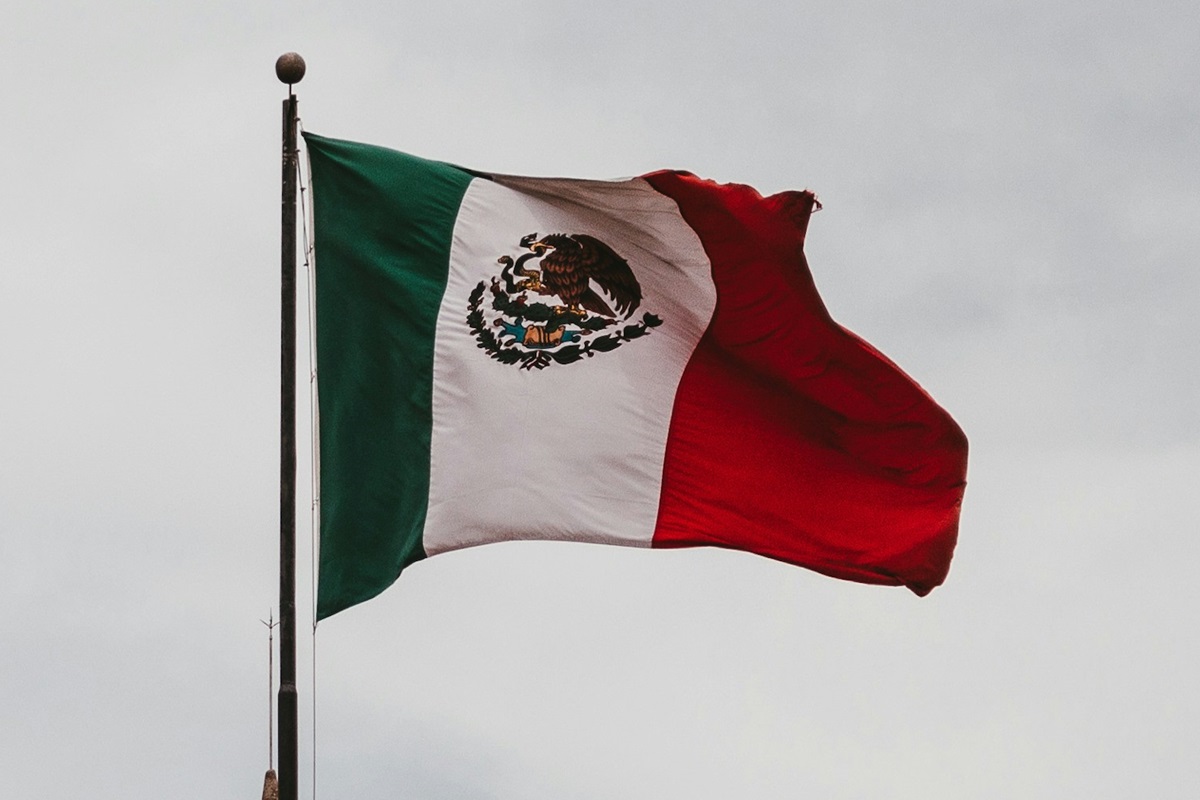Centuries-old historical experience, in the vast, but perhaps not infinite space of which human life dissolves, at best leaving behind a trace, over time, with a high degree of probability, significantly fading or completely disappearing under the pressure of new times, indicates that changes in global processes are a kind of phenomenon that creates winners and losers, and this thesis is currently being confirmed by Mexico.

The mentioned country, geographically belonging to the territory of North America, in a culturological context, is strongly associated with Latin America and is, in a worldview and aesthetic aspect, a truly integral part of the specified region, now strengthens its position as a production base against the background of the fact that the supply chains of the United States are gradually separating from China. In this case, Mexico City is the winner of changing global processes. It should be clarified that this means that the country corresponds to the status of the main beneficiary, but it has its share of positive consequences from the transformation of trade and economic reality.
The development of production processes in Mexico is a reasonable and positive long-term solution for those companies that are faced with a more than significant and incredibly sensitive problem in the form of supply chain disruptions during the coronavirus pandemic. Also, this country as a manufacturing base can generate considerable benefits for those firms that want to reduce the level of dependence of their business on the condition of trade relations between the United States and China against the background of the tendency of a steady increase in uncertainty in the space of geopolitical interactions. For US companies, the development of making goods in Mexico also means moving production facilities closer to the domestic market.
Alberto Ramos, head of Latin American economics research at Goldman Sachs, said during a conversation with media representatives that as part of continued deep cooperation and transformation of the global supply chain system, the mentioned country’s manufacturing sector has a chance for long-term success. According to the expert, for many years there has been a situation of competition between Mexico and China for the manufacturing market of the United States. Against the background of deteriorating relations between Washington and Beijing, Mexico City can significantly improve its position in the specified race. In this case, the willingness to become a winner is also important. Mexico is showing a determined attitude.
Last year, the mentioned country overtook China as the largest exporter of the United States. Morgan Stanley data indicate that this result is largely due to the activity of the manufacturing industry, which accounts for 40% of the Mexican economy. According to information released by the US Department of Commerce in early April, in February, specified shipments continued to be on a growth trajectory. At the same time, Chinese exports to the United States in 2023 fell by 20% compared to the figure for 2022.
US Trade Representative Katherine Tai says that in the past, the configuration of supply chains provoked a high level of reliance of the United States economy on the Chinese economy. According to her, Washington is currently focused on solving such a task as increasing the stability of the economic system. In this context, she stated that the current trade configuration and the intricacy of the supply chain have formed a significant concentration in the Chinese economy. Katherine Tai also noted the vulnerability faced by the US against the background that emerged due to a fragile export and import system.
Currently, there are clear signs of serious changes and profound shifts in the space of geopolitical relations, but so far there is no definitive understanding of what state of affairs in the international arena will be formed as a result of the current transformation and how much the new version of political and economic reality will differ from the previous one. Business, realizing the specifics of the present historical moment, begins to consider new possible business strategies. It is worth noting that not only companies from the United States but also firms from China see the potential in the Mexican manufacturing sector. In this case, the business has access to several advantages, among which are low labor costs and geographical proximity to the United States. Also, in the relevant context, the US-Mexico-Canada (USMCA) agreement is of particular importance. In this case, it means an agreement concluded in 2020 and generating conditions for more profitable and efficient trade in North America. The USMCA has the potential to become a platform for the so-called development boom, which in this case is a notion that needs to be clarified since the likely rapid growth can become large-scale, but not global in terms of the degree of impact on the conditions of economic systems.
At the same time, reorienting supply chains is not an easy task and implies the need for significant efforts. How Washington will deal with this will become known over time. It is worth noting that the United States is nowadays clearly and unequivocally declaring its desire to increase the resilience of its trade and decrease its dependence on China.
For Beijing, the likely consequences of implementing Washington’s mentioned intentions may turn out to be positive. If the United States disengages from the Chinese economy, the Asian country will gain access to new markets and avoid US tariffs.
The main element in Mexico’s export activities in terms of differentiating the goods supplied by category is cars. In this case, vehicles can be characterized as the most pronounced manifestation of the ongoing processes. Currently, factories of such major automakers as General Motors, Ford, and Stellantis are operating in Mexico. Also, production activities in this country are carried out by almost a dozen other companies of the corresponding functional orientation. Moreover, almost every car manufacturer from the United States uses spare parts from Mexico to assemble their cars or trucks. In this case, the main factor is the low cost of goods.
Free trade agreements like the mentioned USMCA stipulate that companies in the United States, Canada, and Mexico face fewer barriers when moving, selling, and buying parts throughout North America.
Tariff policy is very often an obstacle to trade without borders. In 2018, the United States increased tariffs on imports of goods from China. Against the background of this decision, the access of products from an Asian country to the US market has become more expensive. Washington’s tariff policy has also become a reason for many companies to reconsider the tactics of a significant focus on Chinese supply chains.
Tens of thousands of parts are needed to carry out car production activities, which can be made anywhere. While Mexico’s manufacturing sector is increasing exports to the United States, Chinese companies can interact with this country to avoid Washington’s tariffs. Data from Xeneta, ocean and air freight rate benchmarking and market analytics platform, indicate that Beijing has already begun to benefit from cooperation with Mexico City. In January, the export of shipping containers from China to Mexico showed an increase of almost 60% compared to the figure for the same period in 2023.
Peter Sand, chief analyst at Xeneta, said in a research note released in March that the mentioned data may indicate that importers are seeking to circumvent tariffs from Washington.
Moody’s Analytics experts noted in an April report that Mexico has increased manufacturing output, but this dynamic may be related to goods made outside the country.
S&P Global Market Intelligence country risk analysts Jose Enrique Sevilla-Macip and John Raines say that the growth in Mexican exports to the United States coincided with a simultaneous increase in imports from China.
Alberto Ramos talks about the economic incentive to move production to Mexico to avoid tariffs. The expert also noted that this is a way to circumvent the policy goals in the context in which the mentioned measures were introduced.
On Capitol Hill, lawmakers drew attention to the intensification of economic cooperation between Mexico and China. In this context, politicians have stated the likelihood that Chinese steel producers are ducking the tariffs of the United States. The administration of US President Joe Biden is already working with the Mexican government to prevent China and other countries from avoiding tariffs on steel and aluminum. In this case, attention is focused on the import of Chinese goods to the United States from Mexico.
Back in February, Katherine Tai officially drew attention to the lack of transparency regarding steel and aluminum imports from third countries during a meeting with Mexican Economy Secretary Raquel Buenrostro. Moreover, concerns about tariff evasion may provoke certain appropriate decisions on the part of the US president. The media also reports that the revision of the USMCA is scheduled for 2026.
It is worth noting that Joe Biden and Donald Trump, his rival in the upcoming November presidential election, are aiming to develop homegrown production in the United States. At the same time, they have different points of view on how to achieve the corresponding goal. In April, during a meeting with steelworkers in Pittsburgh, Joe Biden said that the United States government should consider tripling Chinese steel tariffs. At the same time, Donald Trump has proposed a potential 60 percent tariff on goods from the Asian country in the event of his return to the presidency of the United States.
Jose Enrique Sevilla-Macip and John Raines say that as the election campaign intensifies, the problem of trade between the United States, Mexico, and China will be exacerbated. In this context, they noted the vying for victory in important Midwestern states.
Changing supply chains as an objective and unambiguous process of economic reality, driven largely by political reasons, does not mean that the relocation of factories will be simple and painless. In this case, the need for significant monetary costs is envisaged. Moreover, the corresponding process cannot be implemented in a short time. If the current geopolitical situation persists, the Mexican manufacturing industry will not lose long-term development opportunities.
Christoffer Enemaerke, portfolio manager at RBC, says that the city of Monterrey, located in the northern part of Mexico, is currently experiencing a boom. According to the expert, following conversations with representatives of companies and analysts in the real estate area, the opinion was recorded that nearshoring is likely to become a factor of long-term growth for Mexico.
It is worth mentioning that last year Tesla announced its intention to build a new factory in Monterrey. The company’s CEO, Elon Musk, said that this plant will increase the existing capacity of the manufacturer, rather than replace it elsewhere.
Moreover, in February, Chinese electric car maker BYD, one of Tesla’s main competitors, announced plans for a large-scale expansion in Mexico. Currently, this company does not sell cars in the United States market, but the implementation of the mentioned intentions will bring it closer to the commercial space of the relevant country.
Alberto Ramos says that Mexico is currently optimistic about the economic outlook in the context of the benefits of the shift in global supply chains. At the same time, the expert noted that so far there are no major investment flows.
Morgan Stanley analysts expect the financial volume of exports from Mexico to the United States to increase from $455 billion to about $609 billion over the next five years.
Jose Enrique Sevilla-Macip and John Raines say that Chinese investment and exports to Mexico are likely to be a problematic factor in the USMCA review planned for 2026. It is still unknown how the problem of interaction between Mexico City and Beijing will be solved. In the short term, Mexico will continue to be a beneficiary of the current geopolitical circumstances.
Christoffer Enemaerke says that nowadays Monterrey seems to be rapidly blooming, new, and vibrant to a greater extent than other industrial cities, including in Asia.
As we have reported earlier, Amazon to Offer BNPL in Mexico.









